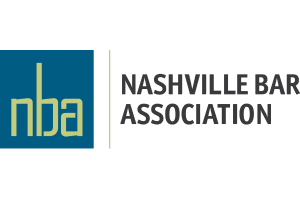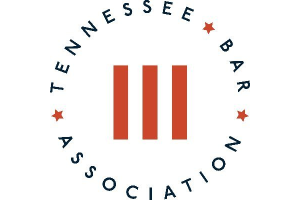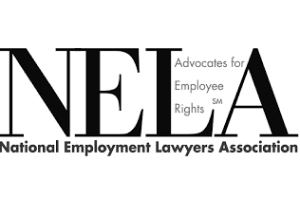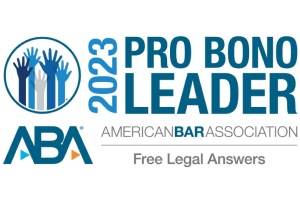for Workers
What Workers Should Know About The Pregnant Workers Fairness Act of 2023
Every month, our Nashville pregnancy discrimination attorneys hear from women who have been discriminated against, denied accommodation, placed on indefinite medical leave, or forced to quit due to their pregnancies. In fact, it is one of the most common problems we deal with.
As of June 27, 2023, a new federal law called the Pregnant Workers Fairness Act (PWFA) protects workers who are pregnant, recovering from childbirth, or who have other pregnancy-related medical conditions. This law is a monumental step forward in ensuring that all women—especially moms and moms-to-be—have equal rights and opportunities in the workplace.
This article sets out the seven most important things you should know about the PWFA. You can read more about other laws that protect against pregnancy discrimination here.
If you or someone you know is facing sex or pregnancy-related discrimination at work, contact our Nashville pregnancy discrimination lawyers for a free online case review at the number above or online. We fight on behalf of employees throughout Tennessee.
1. Your pregnancy is covered even if it is a normal, noncomplicated pregnancy.
All expecting families hope for an uncomplicated pregnancy. According to the National Institute of Health (NIH), about 90% of pregnancies do not include acute complications. Until the PWFA, however, only those who experienced serious complications considered pregnancy-related disabilities or had similar limitations to those experienced by people with workplace injuries were entitled to accommodation.
One of the most important parts of the PWFA is that it removes this requirement. Now, all pregnancies, even normal, uncomplicated ones, are entitled to accommodation. This protection lasts for the entire duration of your pregnancy and beyond, covering morning sickness to lactation and everything in between.
2. You may be covered even if you aren’t pregnant.
The PWFA requires employers to accommodate pregnancy, childbirth, and “pregnancy-related medical conditions.” The Equal Employment Opportunity Commission (EEOC), the federal agency in charge of interpreting and enforcing the PWFA, has issued regulations that interpret the PWFA to cover a long list of conditions affecting reproductive health, including the following examples:
- Past pregnancy
- Potential or intended pregnancy
- Termination of pregnancy (including miscarriage and abortion)
- Infertility
- Fertility treatments
- Pelvic prolapse
- Endometriosis
- Edema of the legs, ankles, feet, or hands
- Antenatal or postpartum depression, anxiety, or psychosis
- Incontinence
- Changes is hormone levels
- Menstruation
- Use of contraception
- Lactation and lactation-related conditions (specifically including low milk supply, engorgement, plugged ducts, mastitis, and fungal infections)
Individuals experiencing any of these conditions may be entitled to reasonable accommodation, including leave for doctor’s visits, even if they’re not pregnant.
3. You are entitled to reasonable accommodation.
Under the PWFA, all employers with at least 15 employees are required to provide reasonable accommodations to workers with physical or mental medical conditions due to pregnancy, childbirth, or a pregnancy-related medical condition. A “reasonable accommodation” is a change to the work environment or to the way a job is usually done.
In its proposed regulations, the EEOC gives the following, non-exhaustive list of examples of reasonable accommodations that should “virtually always” be made available to workers under the PWFA:
- Carrying water, keeping nearby, and drinking water as needed
- Additional restroom breaks as needed
- Breaks to eat and drink as needed
- Allowing an employee whose work requires standing to sit and whose work requires sitting to stand
According to the EEOC, additional reasonable accommodations can include, but are not limited to, the following examples:
- Part-time or modified work schedules
- Temporary reassignment
- Placement in a light-duty program
- Acquisition or modification of equipment, uniforms, or devices
- Devices that assist with lifting or carrying for jobs that involve lifting and/or carrying
- Permitting the use of paid leave (whether accrued PTO, as part of a short-term disability program, or any other employer benefit)
- Providing additional unpaid leave for reasons, including, but not limited to, recovery from childbirth or medical conditions related to pregnancy or childbirth, to attend health care appointments, or to receive healthcare treatment
- Telework
- Providing reserved parking spaces
Perhaps the most important reasonable accommodation available under the PWFA is the temporary suspension of job duties, even those that are considered “essential functions” of an employee’s job. This suspension is available for as long as it is needed, including for the entire duration of the pregnancy, if required. For example, an employee whose job requires lifting heavy boxes could be excused from this duty throughout her pregnancy. This allows for broader accommodations than those available under the ADA.
Moreover, under the Tennessee Pregnant Workers Fairness Act (TPWFA), which is Tennessee’s version of the PWFA, pregnant workers in Tennessee are entitled to the following non-exhaustive list of reasonable accommodations:
- More frequent, longer, or flexible breaks
- A private place, other than a bathroom stall, for expressing breastmilk
- Modified seating or allowing more frequent sitting if the job requires standing
- Assistance with manual labor and lifting limits
- Temporary transfer to a vacant position
- Job restructuring or light duty, if available
- Purchase or modification of equipment, devices, or an employee’s work station
- Modified work schedules
- Flexible scheduling for prenatal visits
Employers must make these and other reasonable accommodations unless they can prove that the requested accommodation is an “undue hardship” to the employer’s operations. An “undue hardship” means that providing the accommodation would cause significant difficulty or expense for the employer.
If you believe your employer has failed to accommodate your pregnancy or your pregnancy-related legal rights have been violated, contact our employment discrimination attorneys in Nashville at the number above or submit our online intake questionnaire here.
4. You are entitled to medical leave, no matter how long you have worked for your employer.
One of the most important benefits of the PWFA is that, if you work for an employer that has at least 15 employees, you are entitled to medical leave for pregnancy, childbirth, or pregnancy-related medical conditions. While the PWFA covers only employees (not other types of workers like independent contractors), this is true for all employees who are pregnant or experiencing a pregnancy-related condition, no matter what type of employee you are (i.e., part-time or full-time, salaried or hourly) or how long you have worked for your employer.
This is a huge change in the law because other laws like the Family and Medical Leave Act (FMLA), which entitles employees to medical leave for many serious health conditions including pregnancy and childbirth, only applies to employees who have worked for their employer for 1,250 hours, for at least one year, and who work for an FMLA-covered employer (meaning it has 50 or more employees within 75 miles of your work location). According to the EEOC, only about 56% of workers are covered by the FMLA.
Under the PWFA, all employees are entitled to maternity leave and time off to attend doctor’s visits, recover from childbirth, or attend to their pregnancy-related medical needs.
Just as importantly, under the PWFA, employers are not allowed to force employees to go out on medical leave (whether paid or unpaid) unless there is no other reasonable accommodation available. This is a tremendous step forward in ensuring that women are allowed to make the decisions that are best for themselves and their families, without their employers’ interference.
5. You are entitled to an interactive discussion about your needs.
Under the PWFA, employees who need pregnancy-related accommodations must ask for them. You do not have to know the exact words of the law or use a particular phrase. Instead, you or a loved one must tell the appropriate contact (check your handbook—usually your supervisor and/or Human Resources) that, due to your pregnancy, childbirth, or pregnancy-related medical condition, you need something about your work environment or job to change. Here are some examples from the EEOC of statements that would be considered a request for accommodation:
- “I’m having trouble getting to work on time because of my morning sickness.”
- “I need more bathroom breaks because of my pregnancy.”
- “I need time off work to go to a doctor’s appointment for my pregnancy.”
After you request an accommodation, your employer must then have a discussion with you about your medical condition and the changes you need. This is called the “interactive process.”
As part of the interactive process, your employer might ask for information from your doctor about your medical needs. When medical documentation is needed, it can come from a wide variety of health care providers—including doctors, doulas, midwives, lactation consultants, nurses, and therapists—and is only required to say three things: (1) confirms the employee’s medical condition (such as back pain, swollen ankles, morning sickness, or a lifting restriction), (2) states that the medical condition is related to pregnancy, childbirth, or pregnancy-related medical condition, and (3) states what change or adjustment at work is needed due to the condition (such as time of work for doctor’s appointments, a 20-pound lifting restriction, or an adjusted work schedule). Employee medical information must be maintained confidentially and not shared with anyone except those who need to know.
Under the PWFA, employers cannot ask for medical documentation beyond the employee’s say-so when the need for an accommodation is obvious, when the accommodation requested is one of those that is considered “virtually always” reasonable (listed in #2, above), when the request is about lactation or pumping, or when the employee has already provided sufficient information to the employer. For example, asking for a larger uniform, time to pump while breastfeeding, or to sit down or drink water while pregnant is obvious and should not require any documentation. Similarly, a woman who needs come in late due to morning sickness cannot be required to bring in a new doctor’s note every time.
All accommodations must go through the interactive process. If your employer tries to force you into taking a specific accommodation without discussing it with you first, it may be violating the PWFA. However, like accommodations for disability under the Americans with Disabilities Act (ADA), employees are not always allowed to choose their own accommodation under the PWFA. If more than one accommodation would be equally effective, the employer has the right to make the final decision about which accommodation it will allow. The exception, as discussed above, is that employers are not allowed to force pregnant employees to go out on medical leave unless no other accommodation is available.
6. Your employer cannot take action against you for asking for accommodations.
Under the PWFA, employers are required to give workers the accommodations they need due to pregnancy. Just as importantly, your employer cannot interfere, try to stop, pressure, threaten, or retaliate against you for asking for accommodations.
Specifically, the PWFA prohibits employers from doing the following:
- Denying reasonable accommodations for pregnancy, childbirth, or pregnancy-related medical conditions, absent an undue hardship
- Requiring an employee to accept an accommodation, unless the accommodation is reasonable and has been decided through the interactive process, as described above
- Denying a job or other employment opportunities to or taking an adverse action against a qualified employee or applicant based on their need for a reasonable accommodation
- Requiring an employee to take leave (paid or unpaid), if another reasonable accommodation can be provided that would let the employee keep working
- Retaliating against an individual for reporting or opposing unlawful discrimination under the PWFA or participating in a PWFA proceeding (such as an investigation)
- Interfering with, or denying, any individual’s rights under the PWFA
- Coercing, intimidating, or threatening any individual for exercising, or helping or encouraging other employees to exercise, their rights under the PWFA
In addition to these protections, the Tennessee PWFA also prohibits an employer from counting pregnancy-related absences under a no-fault attendance policy. This would include policies like a “point system” where points are given for all absences, regardless of the reason.
7. If your pregnancy-related legal rights are violated, immediately contact a Tennessee employment lawyer.
The EEOC is now accepting Charges of Discrimination for violations of the PWFA. In order to file an EEOC charge under the federal PWFA, an employee must be complaining about an action that took place on or after June 27, 2023. To learn more about the EEOC process, you can read our articles about why it is crucial to have an employment lawyer file your EEOC charge.
If you believe you were subject to discrimination based on your pregnancy before June 27, 2023, there are other laws that might protect you, including the Tennessee PWFA, which went into effect in 2020. You can read more about other laws that protect against pregnancy discrimination here.
Individuals can file lawsuits to redress their rights under the PWFA. Plaintiffs in PWFA cases can receive the same damages as in other cases of sex discrimination, including lost wages, front pay, compensatory and punitive damages, and attorneys’ fees and court costs. You can read more about the damages available in an employment discrimination lawsuit here.
Take Action Right Away
The PWFA is a brand-new federal law that could revolutionize the way pregnant workers and working moms are treated in the workplace. But that can only happen when workers stand up for themselves and assert their legal rights! Now is the time to stand up against pregnancy discrimination.
If you believe you have experienced pregnancy discrimination or your rights under the law have been violated, our experienced Tennessee pregnancy discrimination lawyers can fight for you. Contact Rickard Masker, PLC for a free online case review at the number above or online.














